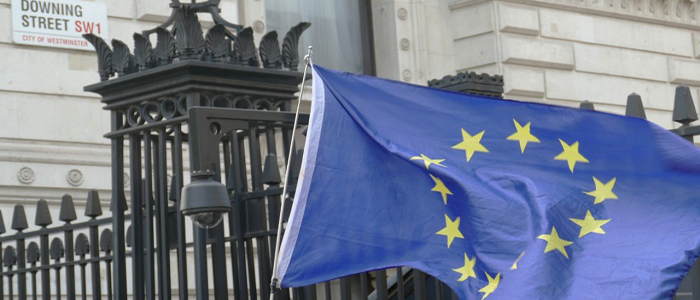-
ROSSLARE EUROPORT TARGETS HEALTH & SAFETY WITH CAMERA TELEMATICS PARTNERSHIP - 2 days ago
-
Landmark Study Reveals Wearable Robotics Significantly Boost Safety and Efficiency in Industrial Environments - July 24, 2024
-
Visku Tackle The Retail Seasonality Challenge One Pallet At A Time - July 22, 2024
-
KAMMAC AND BERGEN LOGISTICS STRENGTHEN FASHION & LIFESTYLE SERVICES IN THE UK - July 19, 2024
-
TENTBOX EXTENDS PARTNERSHIP WITH ARROWXL TO SUPPORT INCREASING DEMAND - July 17, 2024
-
The Perfume Shop improves customer journeys while driving profitability in partnership with Scurri - July 17, 2024
-
ZEROMISSION SECURES £2.3M ($3M) INVESTMENT TO ACCELERATE ELECTRIC FLEETS - July 16, 2024
-
BCMPA CELEBRATES SUCCESS OF 2024 CONFERENCE - July 15, 2024
-
Best of the Best: Jungheinrich Celebrates Triple International Award Win - July 12, 2024
-
GOPLASTICPALLETS.COM CALLS ON NEW CHANCELLOR RACHEL REEVES TO CONSIDER PLASTIC PACKAGING TAX REFORM - July 10, 2024
How retail trade suppliers can prepare for Brexit
Christmas is coming and so is another Brexit caused election. 2019 has undoubtedly been a tough year for retail (the more generous analysts refer to it as “challenging” rather than tough – so far 37 retailers have failed and 42,853 employees have been affected – retailers like Jack Wills, Mothercare and Bathstore.
The crisis on the high street is a rare combination of things – ever growing online sales, consumer confidence (or rather lack of it, caused by Brexit), foreign exchange rates pushing up prices (again caused by Brexit), higher minimum wages levels (retailers have amongst the highest percentage of minimum wage staff) and of course business rates (which online competitors are barely exposed to).
I have no idea if 2020 will prove to be a better year for retail or who will win the forthcoming election but there is another potential bump in the road for retail – and again, it is Brexit related. The issue relates to the cash impact of VAT on imports.
Let me explain….
At present all imports and exports to and from the EU do not have VAT – it’s a single market. After we leave there will be a customs border with import duties and VAT at the point of entry (pretty much all goods from clothes to wine – VAT doesn’t apply to food so the major food retailers are largely spared). The import duties are likely to be passed onto the consumer in the form of higher prices. The VAT will be reclaimed by the purchaser (the retailer) from HMRC in the quarterly VAT return.
But here is the problem – at present the retailer pays the supplier the purchase price after a period of credit – it can be up to 150 days in the case of some large retailers – they like to hold onto the money for as long as possible to maximise their cashflow.
After Brexit, the VAT and import duty will be payable on day 1 (not day 150 in the example above) and the retailer can reclaim it in the next VAT return (anywhere from 37 days to 127 days later). So for a retailer with £100m of annual purchases from the EU that will mean £20 million of VAT each year – of which up to 4 months of VAT will be held by HMRC instead of the retailer at any one time – up to £6.6 million of cash lost within 4 months of Brexit for every £100 million of EU imports – given the already fragile state of the sector this is likely to cause a few issues – and may be the final nail in another few retailers coffins.
So, is there a way out of this? Well, short of HMRC saying they don’t want the cash, someone is going to have to suffer and stump up the money. Word on the street is that retailers have already sussed the position and are planning on making the supplier fund the cash hit. That is not surprising given that the big retailers like to hold onto their cash.
But is it realistic to expect the supplier to be able to take the cash flow hit – and in addition, the supplier will have to be able to make a VAT reclaim in the UK – therefore they need to have a company or branch to be able to import the goods and reclaim the VAT. The alternative is that they find a distributor in the UK who buys their goods, pays and reclaims the VAT and sells the goods to the retailer.
Most large suppliers will already have a UK presence of some sort, many smaller or medium sized suppliers will not. So, they are faced with the prospect of setting up a UK business or losing part of their margin to the distributor who facilitates the purchase and sale.
A UK presence is by far the simplest route – the UK is an easy place to do business. So, depending on whether the retailers or the suppliers take the hit will determine some of the pain that may be borne once Brexit is done (assuming it is done that is!)
About the Author
John Leyden FCA was shortlisted for the Finance Director of the Year Awards 2012 by the ICAEW. He spent 7 years at KPMG before starting Carbon Accountancy, which prides itself on outstanding client service and meeting client needs through trust and dedication. John specialises in business advice, audits, tax planning, corporate finance, due diligence and share option schemes.
The firm was shortlisted in Accountancy Age’s British Accountancy Awards 2012 as Independent Firm of The Year, Greater London and was named as one of the “runners and riders” – one to watch – in Accountancy Age Top 50 + 50 firms in the UK.

































